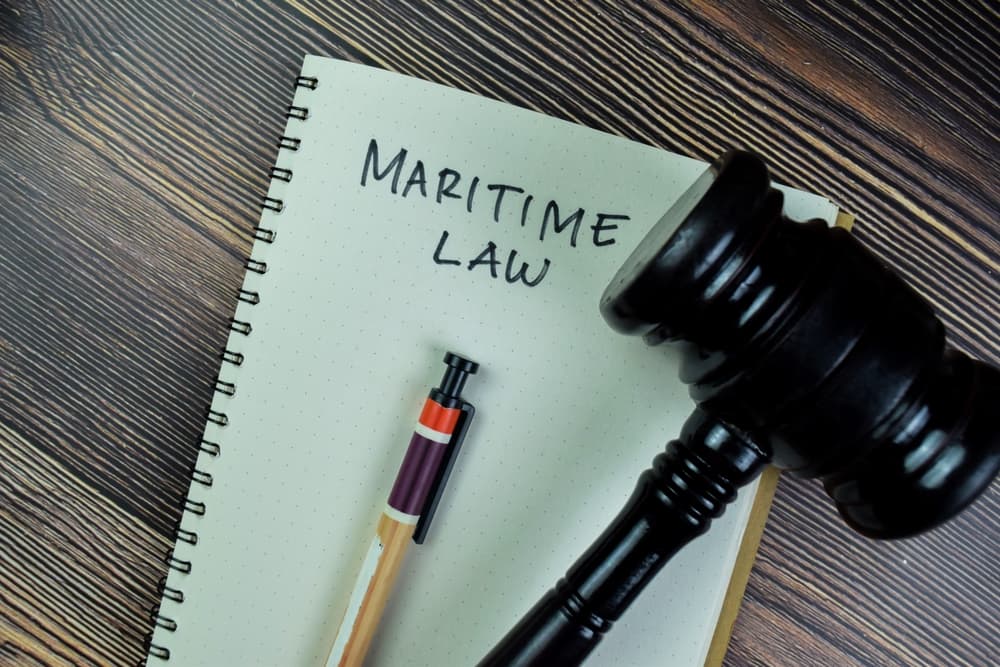Last Updated on December 3, 2024 by The Young Firm
When you’re involved in a maritime accident or injury, your legal rights are often governed by federal and state laws. One of the most important legal doctrines you’ll encounter is the Saving to Suitors Clause. This clause, part of U.S. maritime law, can directly impact how and where you file your case if you’re injured while working at sea or as a passenger on a vessel.
As a seaman, it’s important to understand how the Saving to Suitors Clause affects your ability to seek compensation and how a maritime accident lawyer can guide you through the process.
The Origins of the Saving to Suitors Clause
The Saving to Suitors Clause dates back to the Judiciary Act of 1789, a foundational piece of legislation that established the federal court system in the United States. The clause is included in 28 U.S.C. § 1333(1) and grants federal courts original jurisdiction over maritime and admiralty cases. However, it also reserves certain rights for plaintiffs to pursue their cases in state courts under some circumstances.
This dual-jurisdiction arrangement is unique to maritime law. While federal courts have primary authority over admiralty matters, the Saving to Suitors Clause allows plaintiffs to file maritime claims in state court if they seek a common law remedy. Essentially, the clause “saves” the right of suitors (plaintiffs) to pursue their claims in venues other than federal courts.
How the Saving to Suitors Clause Works in Practice
When you’re injured in a maritime accident, the Saving to Suitors Clause can give you more flexibility in deciding where to file your lawsuit. Maritime claims can be complex, and the court where you file your case may influence the outcome. The clause allows you to pursue a remedy in state court rather than being restricted to federal admiralty court, as long as you’re not seeking certain maritime-specific remedies like those under the Jones Act (originally called the Merchant Marine Act of 1920).
In practice, this means that if you’re injured at sea, you might have the option to file your case in either state or federal court, depending on the nature of your claim. For example, if your case involves a personal injury due to negligence, you can file in state court under common law principles rather than pursuing an admiralty-specific remedy in federal court. A maritime accident lawyer can help you determine the best venue for your case.
The Difference Between Admiralty and Common Law Remedies

One of the most important aspects of the Saving to Suitors Clause is the distinction it creates between admiralty remedies and common law remedies. Admiralty law, also known as maritime law, is often handled in federal court. It governs legal claims related to the sea, including maritime contracts, torts, and injuries sustained while working on or near the water. Admiralty law has its own set of rules, and federal courts have exclusive jurisdiction over certain maritime matters.
On the other hand, common law remedies are based on principles usually handled in state courts. These include negligence, breach of contract, or personal injury claims. The Saving to Suitors Clause gives you the flexibility to pursue these common law remedies in state court, even if your injury occurred in a maritime context.
For example, if you’ve suffered an injury in a maritime accident but your claim is based on negligence, you can file your case in state rather than federal court. This flexibility is particularly important if you’re looking to recover compensation for certain types of damages that may not be available under admiralty law, such as punitive damages or broader compensatory damages.
A maritime accident attorney can help you determine which legal approach best suits your case and whether filing in state court under common law might be a better option for your claim.
Why Choose State Court Over Federal Court?
If you’ve suffered an injury in a maritime accident, you might wonder why you would file your case in state court instead of federal court. There are several reasons why pursuing your claim in state court might be advantageous.
Access to a Jury Trial
One of the biggest factors that might influence your decision is your ability to request a jury trial. Admiralty courts, which operate under federal jurisdiction, generally do not allow jury trials. Instead, a judge typically hears admiralty cases and decides both the facts and the law. However, the Saving to Suitors Clause allows you to file your case in state court, where jury trials are often available.
If you believe that a jury might be more sympathetic to your situation, choosing a state court can make a significant difference in the outcome of your case. Juries are made up of everyday people, who can be more inclined to understand and relate to your injury’s emotional and financial impact.
Broader Damages and Remedies
State courts may also offer procedural advantages different from federal courts. Depending on the specifics of your case, state laws governing negligence, breach of contract, or personal injury may offer a broader range of remedies. In contrast, admiralty law may limit the compensation you can recover.
For example, punitive damages that punish particularly egregious behavior are often harder to obtain in a federal admiralty court. However, if your claim is based on negligence and you file in state court, you might have a better chance of recovering those damages.
The Procedural Benefits of State Court
In addition to the availability of a jury trial, state courts often have more straightforward procedural rules. Federal admiralty courts have specialized procedures, sometimes making it more difficult to pursue your claim. State courts may be more familiar with common law negligence or personal injury claims, making the process more efficient.
A maritime accident lawyer can review your case and advise whether filing in state or federal court is the best path for securing the compensation you deserve.
How the Saving to Suitors Clause Affects Maritime Personal Injury Claims

The Saving to Suitors Clause can significantly impact personal injury claims related to maritime work. If you’re a seaman or maritime worker, you have legal protections under the Jones Act, which allows you to sue your employer for negligence. The Jones Act is a federal law typically handled in admiralty court, but it’s only one part of the broader legal landscape governing maritime injuries.
Under the Saving to Suitors Clause, you can file your personal injury claim in state court if you seek a common law remedy, such as negligence. For example, suppose you’re injured in a slip-and-fall accident aboard a vessel due to unsafe conditions. In that case, you might file a claim for negligence in state court rather than relying solely on the Jones Act or other federal maritime laws.
Filing in state court can preserve your right to a jury trial and give you access to broader remedies under state personal injury law. Depending on the nature of your injury and the circumstances of your case, pursuing a claim in state court can lead to a more favorable outcome. Again, a maritime accident attorney can help you assess your options and decide whether state or federal court is the right venue for your case.
Filing in Federal Court Under Admiralty Jurisdiction
While the Saving to Suitors Clause allows you to file in state court, federal courts still play a vital role in maritime cases. Federal courts have original jurisdiction over all admiralty and maritime matters, meaning that certain claims, such as those involving salvage rights or disputes over vessel seaworthiness, are heard exclusively in federal court.
Admiralty law covers a broad range of maritime issues, including cargo disputes, collisions at sea, and claims related to the maintenance and cure of injured seamen. A judge typically hears these cases, and the court follows specific maritime law principles.
If your claim falls within these specialized areas, you may not have the option to pursue your case in state court. However, if you’re pursuing a common law remedy like negligence or breach of contract, the Saving to Suitors Clause allows you to bring your case in state court, where common law rules apply. A maritime accident lawyer can help you determine whether your claim should be filed under admiralty jurisdiction or whether you can take advantage of the Saving to Suitors Clause to file in state court.
Understanding Maritime Contract Disputes Under the Clause
The Saving to Suitors Clause doesn’t just apply to personal injury claims. It also plays a critical role in maritime contract disputes. If you’re involved in a contractual disagreement related to maritime commerce, the clause allows you to bring your case to state court if the contract can be enforced under common law principles.
For example, if you’re a cargo ship operator involved in a dispute over the delivery of goods and seek compensation for breach of contract, you might choose to file your claim in state court. Doing so gives you the flexibility to pursue remedies based on common law contract principles rather than being limited to the specific rules of admiralty law.
This flexibility can benefit maritime businesses as well as individual workers. It allows parties to seek a broader range of legal remedies while maintaining the option to pursue their case outside of the federal court system. An attorney who understands maritime and state common law can guide you through the process and help you make informed decisions about where to file your claim.
What Happens When a Case is Removed to Federal Court?
Even if you file your case in state court under the Saving to Suitors Clause, there’s always a possibility that the defendant will try to remove it to federal court. Removal is a legal process allowing defendants to move a case from state to federal court under certain circumstances.
In maritime cases, removal typically happens when the defendant argues that the case involves admiralty or maritime claims that fall exclusively under federal jurisdiction. However, if your claim is based on a common law remedy, such as negligence or breach of contract, and you’ve chosen state court under the Saving to Suitors Clause, the defendant may face an uphill battle in trying to remove the case.
A maritime accident attorney can help you fight removal attempts and keep your case in state court if that’s the best venue for your claim. The attorney will protect your rights under the Saving to Suitors Clause, retaining the option to pursue your case in the most favorable court.
The Importance of Timing in Maritime Claims

Timing is critical when pursuing maritime claims. The statute of limitations for filing a maritime injury or contract dispute can vary depending on whether you’re filing in federal or state court. Under the Jones Act, for example, you typically have three years to file a claim for personal injury. However, state courts may impose different deadlines depending on the nature of your claim.
If you miss the deadline for filing your case, you can lose your right to recover compensation. This makes it important to act quickly after an injury or dispute. A maritime accident lawyer can help you understand all of the relevant deadlines and ensure that your claim is filed in the appropriate court before time runs out.
Contact a Maritime Accident Lawyer for More Information
The Saving to Suitors Clause is a powerful tool in maritime law that allows you to seek compensation for injuries or contract disputes in state court, even if your case arises from a maritime incident.
By allowing you to pursue common law remedies outside of federal admiralty court, the clause provides flexibility in how and where you file your claim. Whether you’re seeking a jury trial, broader legal remedies, or simply a more favorable venue, the Saving to Suitors Clause can play an important role in your maritime case.
An experienced maritime accident lawyer at The Young Law can ensure that your case is handled in a way that gives you the best chance of recovering fair compensation. Contact an attorney online to schedule a free consultation.

